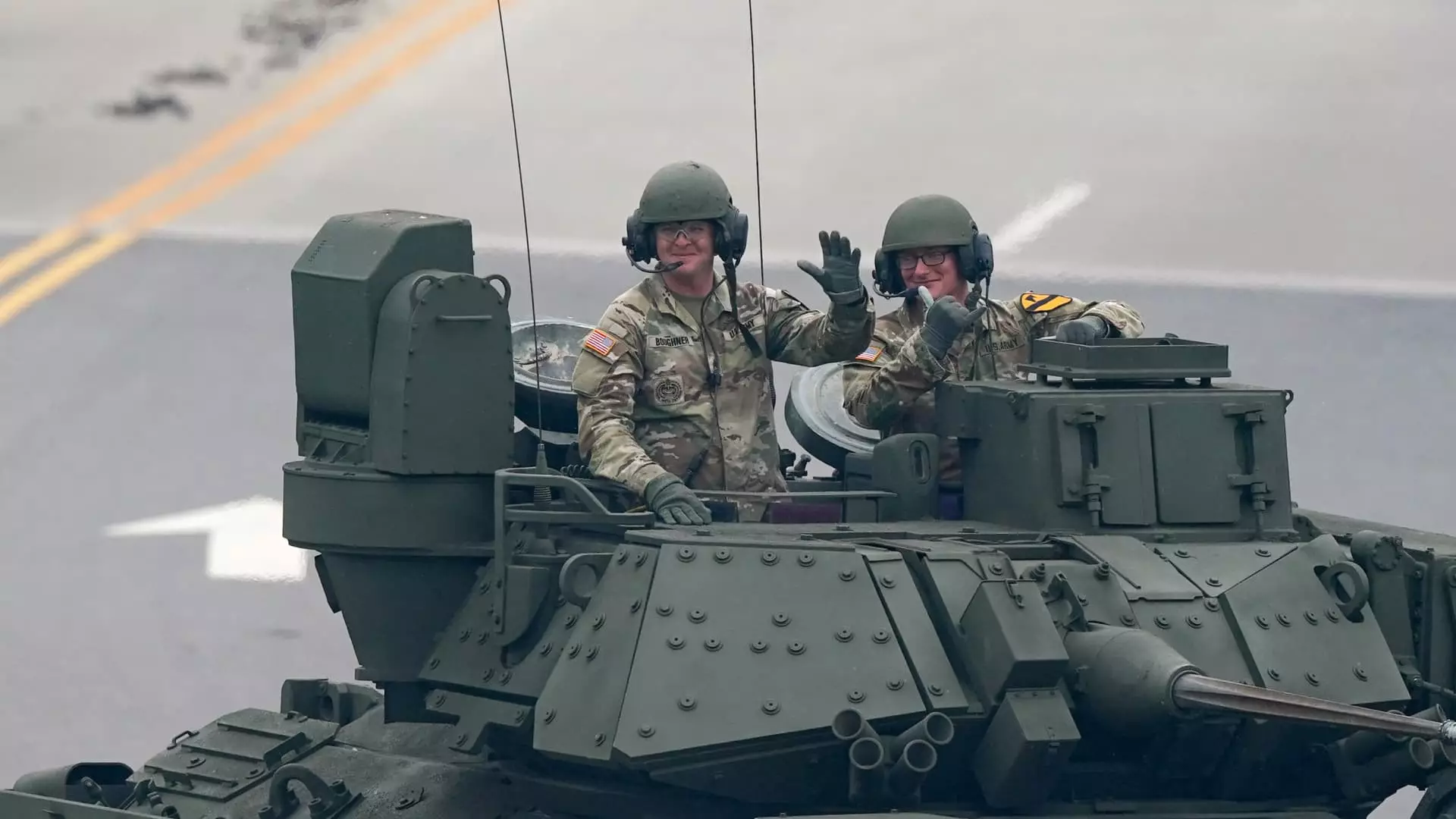As world leaders convene in The Hague for this year’s NATO summit, a significant shift is underway in European defense spending priorities. The agreement among 31 of the alliance’s member states to increase their defense spending target to 5% of gross domestic product (GDP) marks a momentous, albeit troubling, shift from the previous norm of 2%. While the proposed uptick presents a formidable strategy for collective security in an increasingly volatile geopolitical climate, it raises considerable concerns regarding resource allocation, national priorities, and the potential for an arms race.
One must ask—what explains this drastic change in the rhetoric surrounding defense expenditures? The specter of rising threats, ranging from cyber warfare to traditional military confrontations, looms large, prompting leaders to prioritize defense budgets over essential public services. By placing an intensified currency on military readiness, leaders are signaling to their constituents that security has ascended to the apex of governmental concerns, overshadowing pressing issues such as education, healthcare, and climate change.
Stocks Surging Amidst Tensions
What is perhaps more disturbing than mere rhetoric is the unbridled surge in European defense stocks. The Stoxx Aerospace and Defense index, boasting a remarkable year-to-date increase close to 50%, illustrates the profitable entanglement of militaristic ventures and financial markets. Key players including Babcock International, Avio, and Renk have experienced gains that testify to investors’ growing confidence in the defense sector, fueled by this geopolitical context.
While the rise of defense corporations might seem indicative of financial acumen, one cannot ignore the ethical ramifications. Is prioritizing profits from warfare truly a sustainable and just path forward? The optics of capitalism thriving on the backs of conflict and tragedy should compel us to question the moral fabric of our societies. Shouldn’t our investments reflect values of peace, cooperation, and mutual development rather than enmity and fear?
The Economic Complexity of a Fragile Ceasefire
Markets react to geopolitical dynamics, as evidenced by modest gains in other European indices. However, such fluctuations conceal a more profound narrative—one that imbues economics with the uncertainties of international relations. With a delicate ceasefire between Israel and Iran, sentiment across markets suggests hope, yet hope can be perilously naïve. The specter of conflict hangs over both regions, thus implicating the broader European economy and its interdependencies.
Investors and policymakers alike should recognize the inherent fragility of this situation. Instead of celebrating cosmetic gains, a critical examination of the underlying stability is essential. The compulsion to maintain economic buoyancy at the expense of peace reflects misplaced priorities that undermine the very fabric of civil society. When financial markets rapidly react to the minutiae of international skirmishes, we must question whether economic stability is genuinely attainable if rooted in instability.
Navigating Domestic Sentiment with Global Actions
Furthermore, the discussions at this NATO summit come in juxtaposition with broader economic landscapes in Europe. While issues like consumer confidence in France and economic performance in Spain may appear as manageable metrics, they highlight the contrast between military focus and the welfare of citizens. Citizens should not have to choose between a robust defense and essential services—a dichotomy that is increasingly becoming entrenched in public discourse.
The distinct impression is that NATO’s aggressive posture, coupled with the accompanying rhetoric from leaders, risks alienating grassroot sentiments further. Citizens across Europe want assurances that their governments prioritize tangible benefits over abstract security narratives. While some debate may be warranted, there lurks an undeniable tension between immediate local needs and the grand strategies of geopolitical plays.
The balance between preparing for potential threats and investing in the socio-economic well-being of the populace remains precarious. European leaders must recalibrate their approaches to defense spending, acknowledging that human security—social advancement and environmental resilience—should be as prioritized as national security in these turbulent times. In doing so, they forge a path that harmonizes defense needs with a commitment to democratic, socio-economic principles—a challenge no less formidable than any military engagement.


Leave a Reply